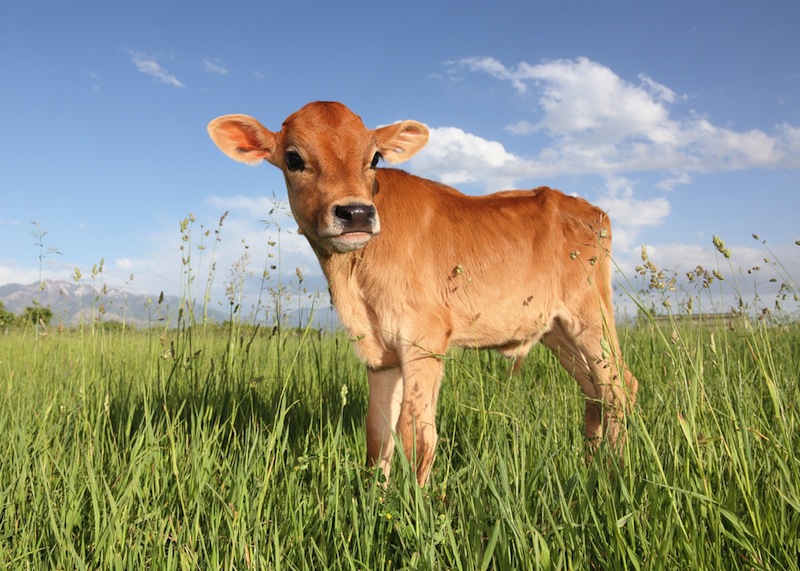Lonely Cows Are Slow Learners

Get the world’s most fascinating discoveries delivered straight to your inbox.
You are now subscribed
Your newsletter sign-up was successful
Want to add more newsletters?
Join the club
Get full access to premium articles, exclusive features and a growing list of member rewards.
Immediately after birth on many dairy farms, baby cows are separated from their mothers and housed in their own pens to protect them from getting sick. Two months later, they join the herd.
But early-life isolation may be depriving baby cows of the opportunity to reach their full potential, found a new study. Compared to calves raised in pairs, isolated calves were much slower to learn new things and had a harder time adapting to changes in their environment.
Aside from animal welfare concerns, the new findings suggest that dairy farmers have long been overlooking the brain development of their cows by depriving them of social interaction in their early weeks.
PHOTOS: Animals Make Art
“Imagine I said that instead of sending your child to kindergarten, I could put him in the classroom one-on-one with the teacher and all the same resources,” said Daniel Weary, a professor of animal welfare and dairy science at the University of British Columbia in Vancouver.
“But at the end of the day, if we found that individuals in this system were showing cognitive deficits in relation to other individuals, we would feel bad about that.”
For cows, he said, “it means we’re not keeping these animals in an environment that allows them to be what they can be and should be.”
Diseases spread quickly through cattle herds, and calves are particularly vulnerable, so for generations, traditional farmers have raised newborn cows in their own pens for the first six to eight weeks until they are weaned from milk.
Get the world’s most fascinating discoveries delivered straight to your inbox.
On the research farm at the University of B.C., though, Weary and colleagues noticed that calves that had been raised alone had trouble adjusting to the group when they were finally moved over. They couldn’t navigate the big pen. They struggled to use the group feeder.
VIDEO: Cow Farts Blow Up a Barn!
It was like “the annoying kid in the school yard who always followed you around,” Weary said. “These individually raised cows don’t seem to know how to regulate their behavior around other animals at all.”
Suspecting that these problems might be rooted in the brain and not just an example of social awkwardness, Weary and colleagues separated 18 calves from their mothers within six hours of birth. They assigned eight of the young cows to solitary pens and 10 to be kept in pairs.
Starting at about a month old, calves were trained on a simple Y-shaped maze that allowed them to choose between a white bottle at the end of one branch and a black bottle at the end of the other. All of the young cows learned quickly that the white bottle was full of delicious milk while the black one was empty.
This story provided by Discovery News.
 Live Science Plus
Live Science Plus










